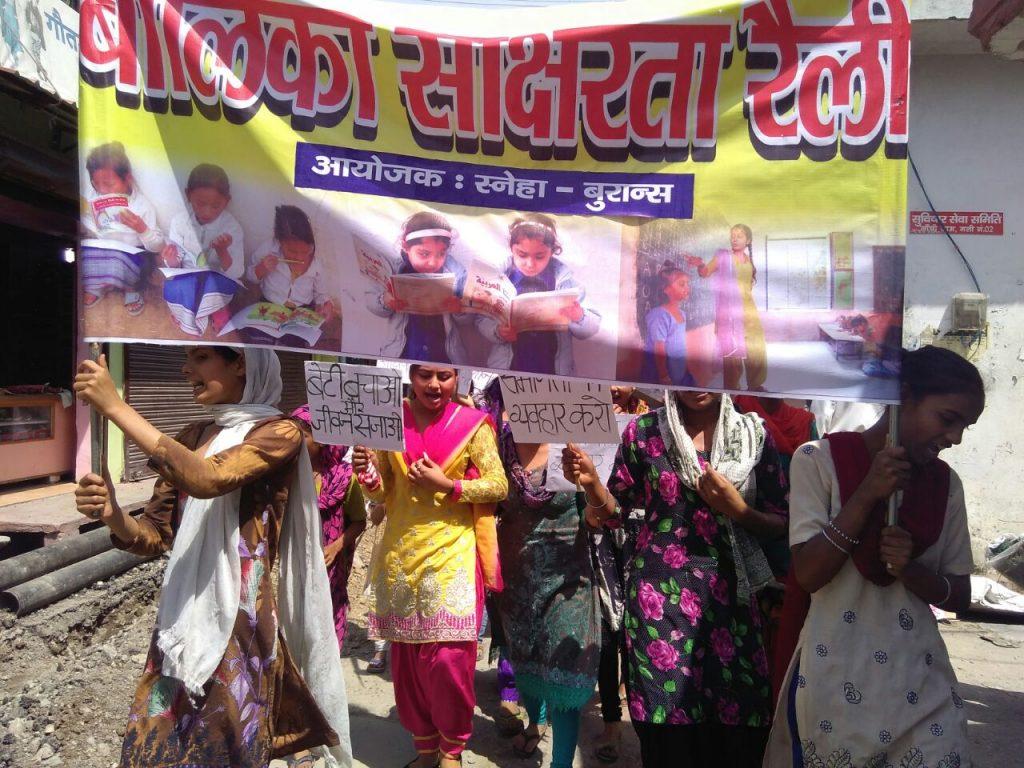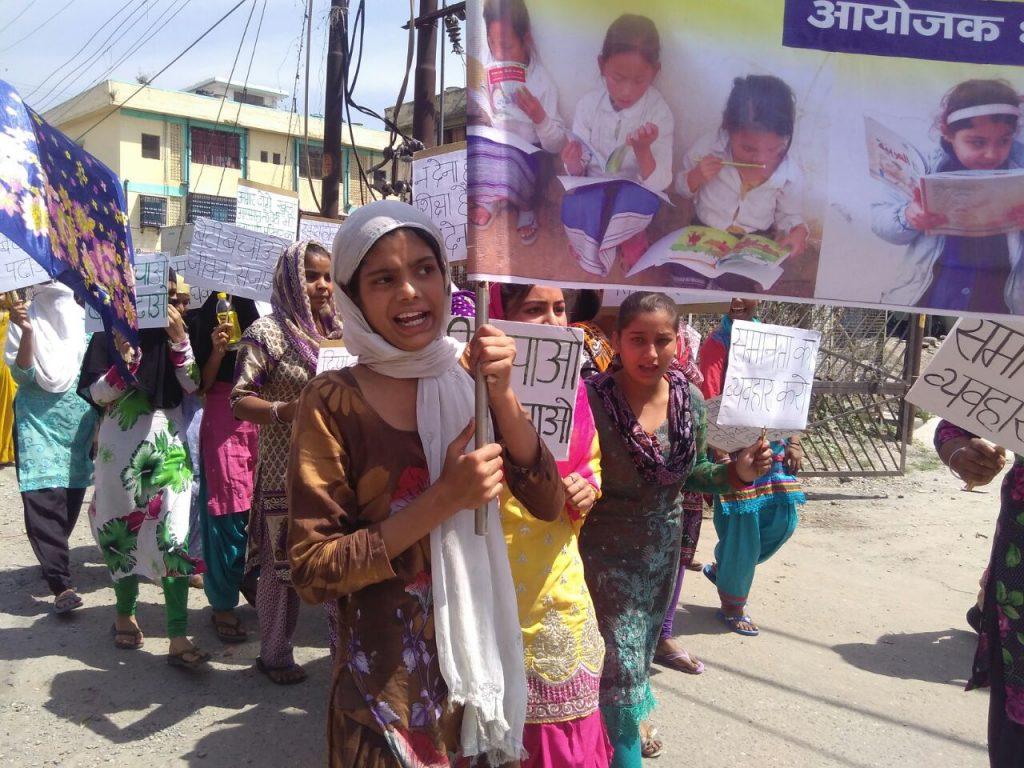Suddenly women are driving scooters everywhere in Mussoorie, the small North Indian town where I work with a local non-profit organisation. This change in the gender norms of vehicle driving means that I have to leave for work ten minutes earlier than I did a couple of years back. Two years ago, children went to school by foot, or riding with their fathers on motorbikes but now the narrow bazaar streets are crowded with mothers on scooters, their studious offspring perched in front and behind. The net effect is more women out and about, and, for me, a slower commute. Even through the day, the bazaar which used to be dominated by male shop-keepers and men with their mules and cans of milk, now feels a more gender-neutral space. Scooter driving by women or men in North India, may not be a stride forward for planetary health, but does it signal gender emancipation? I am still scratching my motorcycle helmet on that one.
Gender relations have had some significant attention lately with, among others, the recent Lancet issue focusing on gender inequality endemic in research and academia. Progress in women’s rights experienced today builds on the activism of our foremothers: a recent story from India describes how women fought their way into the legal profession way back in the early twentieth century. Change takes time, however, and change is still urgently needed. A new wave of feminism (which is the movement to define, establish, and achieve political, economic, personal, and social equality for all genders) is evident even this week, with a new system of penalties for those who force women into ‘menstruating huts’ just established in Nepal. Further publicity around menstruation (and the need to end stigma around it) was prominent in this week’s Oscar award that was won by Period. End of the sentence, an Indian documentary describing eco-sanitary pad manufacture in a village near Delhi.
The central role of gender relations in resilience, wellbeing, participation and access to care is evident every day. Young men in informal urban settlements describe their deep sense of failure and shame when they can’t find a job or generate income, while they are expected by family members to be the breadwinner. Women as caregivers for family members with severe mental health problems are disadvantaged more than male caregivers as they are more likely to lose social contact with friends and neighbours in the tangle of stress and social exclusion. A brother and sister both have epilepsy, yet only the daughter is kept back from attending school. Gender norms limit freedom of movement for women and obstruct those with mental distress from seeking care. The list goes on.
In my day job, our main focus is to promote mental health and social inclusion among people living in disadvantaged communities in Uttarakhand, a mountainous state in North India. As a team we try to understand the community analysis of gender relations. Sitting and talking with groups of women in a remote village some weeks back, I was surprised that their preliminary verdict was “young women and men have equal opportunity nowadays”. One group of women, sitting outside a temple above the Yamuna river, described how their daughters are at least as educationally qualified as their sons, and in fact several young women from the village had completed a Bachelor’s level degree in a nearby college. A mother with four teenagers described how things are hugely different to how they were in her childhood, and thanks to advocacy by a maternal aunt, one of her daughters is actually living and studying in Dehradun, the state capital six hours drive away. Although most of these women had not completed high school, their children were getting much bigger opportunities.
We talked more, and I asked about the differences in opportunity for women and men in terms of freedom of movement. Would their daughters have travelled to Delhi or the Taj Mahal? Would their daughters inherit land and property equally to their sons? Who cooks the dinner and sweeps the floor? They laughed then and ceded that actually, the range of opportunities and expected roles for young men is (still) very different to that of young women. In a rural setting in Uttarakhand, young women may be free to go with peers to cut firewood or cut grass for a whole day but rarely would buy household groceries. In an urban setting, young women may be more likely to go to the houses of the middle-class to cook and clean but rarely walk places without a male family member as escort. Women in both cities and villages have underlined that every family needs to ensure they have a son to care for aging parents, perform funeral rites and just, because.
Structures that support gender inequality and son preference are widespread and systemic in South Asia but women are bringing slow but inexorable change. We have had enthusiastic participation in a psycho-social support group we facilitate in one informal urban community. Women describe ‘mera mun halka ho jate hai’ (my heart feels lighter) after group meetings. A group of nine young women with mental distress decided to study correspondence school together and all of them passed their 10th class exams. Another group of young women in Dehradun city got together, made placards and marched in a vociferous rally through their community to promote high schooling for girls. A group of women impacted by psycho-social disability has coproduced a tool for social recovery in an Indian context.
Women are pushing back, innovating, trying new ways of doing family, working, studying and changing structures. Next Friday, on March 8th, we celebrate International Women’s day. It is an opportunity to notice the ways that women show innovation, show leadership and bring change. The theme from UN Women is “Think equal, build smart, innovate for change”. I’m cheering for women participating in all spheres of life. Whether we are riding scooters or marching on foot – the focus must be emancipation. In Uttarakhand and beyond.

